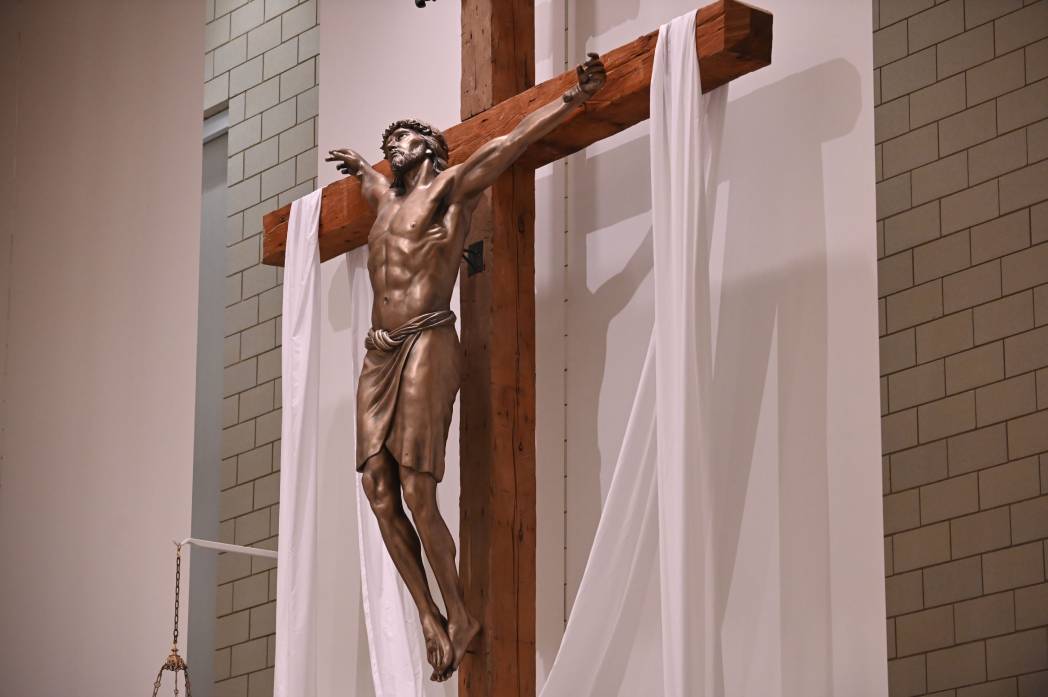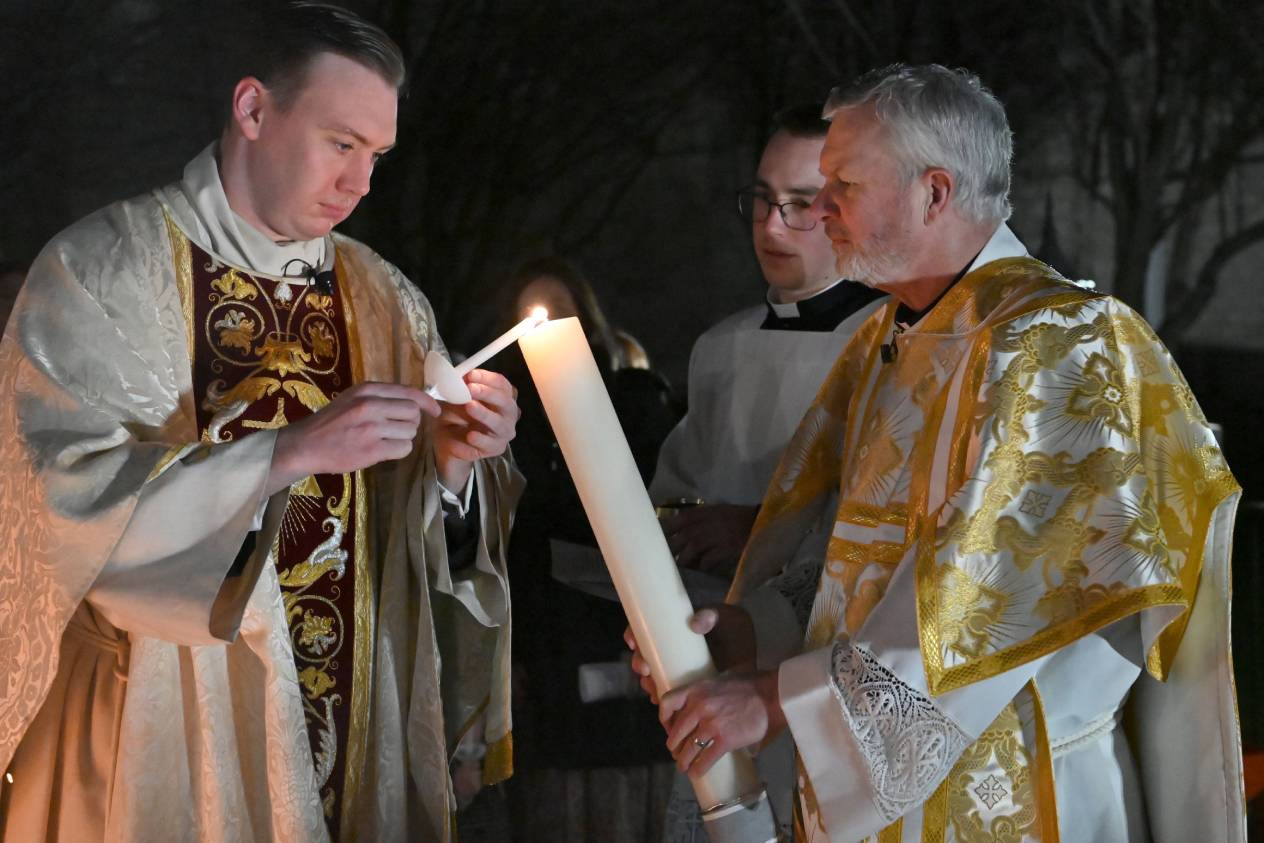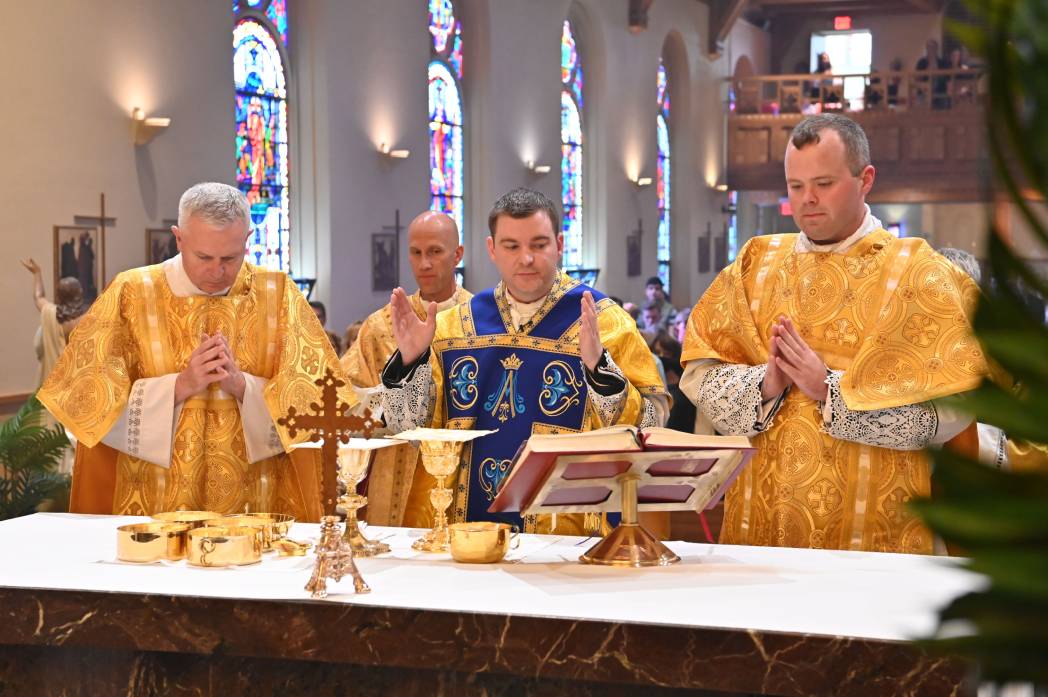
Recognizing the Existence of the Seven Sacraments
The saving words and deeds of Jesus Christ are the foundation of what he would communicate in the Sacraments through the ministers of the church. Guided by the Holy Spirit, the church recognizes the existence of the Seven Sacraments instituted by the Lord. They are the Sacraments of Initiation (Baptism, Confirmation, the Eucharist), the Sacraments of Healing (Penance and the Anointing of the Sick), and the Sacraments at the Service of Communion (Marriage and Holy Orders). Through the Sacraments, God shares his holiness with us so that we, in turn, can make the world holier.
Sacraments of Initiation
The sacraments of Christian initiation—Baptism, Confirmation, and the Eucharist—lay the foundations of every Christian life. "The sharing in the divine nature given to men through the grace of Christ bears a certain likeness to the origin, development, and nourishing of natural life. The faithful are born anew by baptism, strengthened by the Sacrament of Confirmation, and receive in the Eucharist the food of eternal life. By means of these sacraments of Christian initiation, they thus receive in increasing measure the treasures of the divine life and advance toward the perfection of charity." (CCC 1212)

Sacraments of Healing
The Lord Jesus Christ, the physician of our souls and bodies, who forgave the sins of the paralytic and restored him to bodily health, has willed that his Church continues, in the power of the Holy Spirit, his work of healing and salvation, even among her own members. This is the purpose of the two sacraments of healing: the Sacrament of Penance and the Sacrament of Anointing of the Sick. (CCC 1421)
Sacraments of Service
Two other sacraments, Holy Orders and Matrimony are directed towards the salvation of others; if they contribute as well to personal salvation, it is through service to others that they do so. They confer a particular mission in the church and serve to build up the People of God. (CCC 1534)

